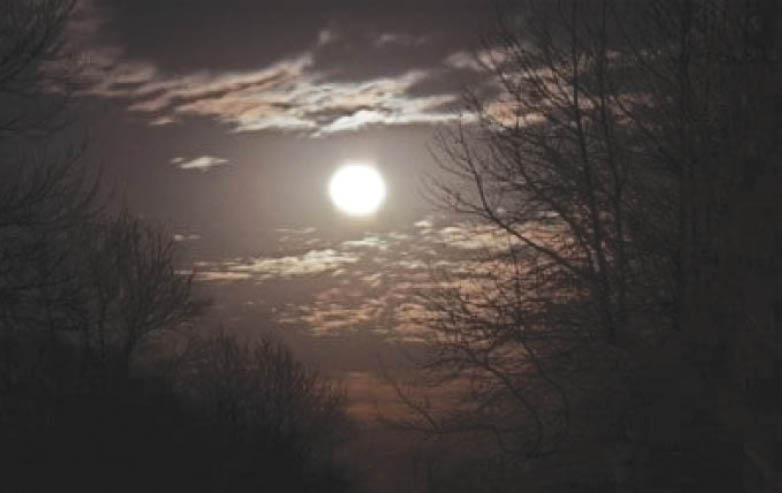If there is one word that defines modern life or living, it would be ‘stress’! Stress is how we react when we feel under pressure or threatened. It usually happens when we are in a situation that we don’t feel we can manage or control. Stress transcends barriers of age, gender, class or creed. Children feel the stress of academic competition, adults feel the stress of career competition and the elderly feel the stress of economic and emotional deprivation. If one experiences excessive stress, it could lead to mental health issues like anxiety or depression.
There are many ways in which stress can be managed. Some people prefer long walks while others prefer yoga or meditation. Some find comfort in music while others in sipping a favorite beverage. However, a growing body of research seems to suggest that prayer and spirituality rank high among the best stress busters.
Prayer As Healing Force…
Nobel Laureate Dr. Alexis Carrel believed that prayer is the force as real as terrestrial gravity. He famously said, “As a physician, I have seen men, after all other therapy had failed, lifted out of disease and melancholy by the serene effort of prayer. Only in prayer do we achieve that complete and harmonious assembly of body, mind and spirit which gives the frail human reed its unshakable strength.”
Dr. Carrel goes on to explain how prayer fortifies us with so much dynamic power… “To answer this question (admittedly outside the jurisdiction of science) I must point out that all prayers demonstrate the same truth – human beings seek to augment their finite energy by addressing themselves to the infinite source of all energy. When we pray, we link ourselves with the inexhaustible motive power that spins the universe. We ask that a part of this power be apportioned to our needs. Even in asking, our human deficiencies are filled, and we arise strengthened and repaired.”
Two Simple Zoroastrian Prayers…
In the Zoroastrianism, there are two simple prayers which can be prayed anywhere and at anytime of the day. The ‘Yatha ahu vairyo’ is a simple prayer of just twenty-one words and equated to the Ahunavar or the sacred chant with which Ahura Mazda created this universe. This prayer embodies the power or energy of creation. It can be chanted whenever one feels low in energy (mental or physical) or gripped by fear of the unknown. When prayed with faith and understanding, it energizes the one who chants it. Chanting the ‘Yatha ahu vairyo’ before starting any work is considered particularly meritorious.
 The other prayer is ‘Ashem vohu’ which is even simpler – just twelve words. This prayer has a calming effect on the mind. It is believed to bestow tranquil sleep if chanted just before going to bed. Even while awake, if negative, angry or anxious thoughts fill the mind, chanting the ‘Ashem vohu’ will bring about a tranquilizing effect.
The other prayer is ‘Ashem vohu’ which is even simpler – just twelve words. This prayer has a calming effect on the mind. It is believed to bestow tranquil sleep if chanted just before going to bed. Even while awake, if negative, angry or anxious thoughts fill the mind, chanting the ‘Ashem vohu’ will bring about a tranquilizing effect.
The Zoroastrian scriptures also recommend that this prayer should be whispered into the ears of a dying person. Even at a funeral or when walking behind a funeral cortege, the scriptures suggest that the Ashem should be chanted both, for the peace of the departed as also for solace of the grieving.
‘Mah’ For Mental Peace…
In the Zoroastrian tradition, the moon is referred to as Mah and the Mah Bokhtar Nyayesh is believed to be the most efficacious prayer for mental peace and managing mental stress, anxiety or depression. This Nyayesh is a relatively short litany to the moon. This prayer can be recited even during the day. However, reciting it at night while facing the moon is considered even more efficacious.
Scientific studies indicate that the moon does not have a noticeable impact on most people’s lives most of the time. However, we cannot rule out the possibility of its role among various environmental factors that might affect our sleep, moods and vitality.
Says Sadhguru Jaggi Vasudev: “Some studies say that on full moon days, people tend to become more imbalanced, or those who have anxiety and manic depression go out of control. The Moon does not cause madness; it just pushes your energy in a certain way. If your quality is joy, you will become more joyful. If your quality is love, you will become more loving. If you are meditative, you will become more meditative. If you have a mental illness, that will also get enhanced. Whatever your quality is gets enhanced because of the full moon.”
It is perhaps for this reason that the Zoroastrian scriptures recommends that the Mah Bokhtar Nyaesh should be recited every day if possible but especially on three days every month — the New Moon, Full Moon and the No Moon.
‘Mah Nyayesh’ In Sync With NASA’s Theory…
According to NASA, “billions of years ago, a version of our Earth that looked very different than the one we live on today, was hit by an object about the size of Mars, called Theia – and out of that collision the Moon was formed. How exactly that formation occurred is a scientific puzzle researchers have studied for decades, without a conclusive answer.”
Interestingly, in the Mah Bokhtar Nyaesh we pray, “nemo maonghai gaochithrai” or homage to one having the seed of the cow. In Zoroastrian scriptures, the earth is visualized in the form of a cow (gao). Even in the Gatha, the earth appears before Ahura Mazda with her grievance in the form of a cow. Gao means cattle or cow and chitra means seed. Thus, gaochithrai means having the seed of earth. It’s amazing how our ancient seers also believed that the moon is an offspring of earth.
Indeed, throughout its long history, the moon has been earth’s companion in space. They have shaped each other through the invisible connection of their gravitational pull. The moon’s gravitational pull is relatively weak compared to earth’s, yet the moon’s gravitational pull is responsible for earth’s current length of day, stable seasons and tides. To some extent the moon also influences the mood.
To keep your mood enhanced, attune yourself to the positive energy that Mah Bokhtar radiates by reciting the Mah Bokhtar Niyaesh!
- Celebrating Mid-Winter - 1 February2025
- Commemorating The ‘Holy Book’ Of India - 25 January2025
- Legend Of The Marathon - 18 January2025
